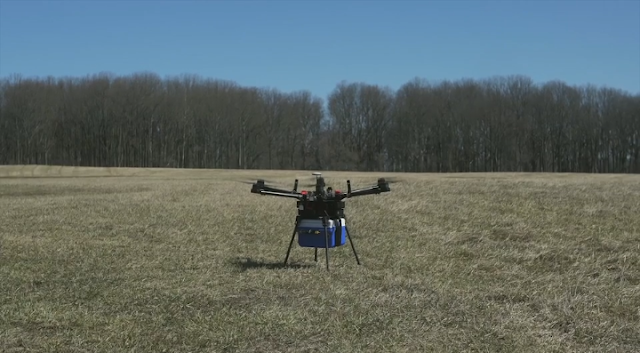Drones could be decisive in medical emergencies now that researchers at the Johns Hopkins Medical School have found an effective way to refrigerate drugs, vaccines and blood during the flight.
Technology for Health
The drones have attracted the interest of large firms like Amazon who see it as an efficient means of transport / delivery. Despite the congestion, the inaccessibility of the places of delivery or the bad weather, the drones will one day all carry by the air.
Medical researchers also considered these benefits, but appropriated the technology for medical purposes. First example: the transport of blood for an emergency transfusion. Provided, of course, that the blood is preserved during transport. "If blood changes or is destroyed in transportation, then nothing matters any more," said Dr. Timothy Amukele, pathologist and director of clinical laboratories at Hopkins Bayview Medical Center who looked into the problem for 18 months.
Amukele published the results of his research in the newspaper Transfusion in November. It shows that the blood samples did not undergo any biological changes during the test flight which lasted approximately 26 minutes over 20 kilometers and 100 meters above the ground.
Amukele is considering delivering pockets of blood to victims of accidents or natural disasters thanks to his discoveries. "Imagine being able to deploy insulin or other important medicine to someone in need by landing or dropping it in his yard," said Matthew Scassero, director of a test site at University of Maryland Unmanned Aircraft Systems (UAS).
But the fields of application could be expanded in the collection of samples in the landlocked areas. This was the case in Papua New Guinea where patients were suspected of having tuberculosis.


















0 comments:
Post a Comment